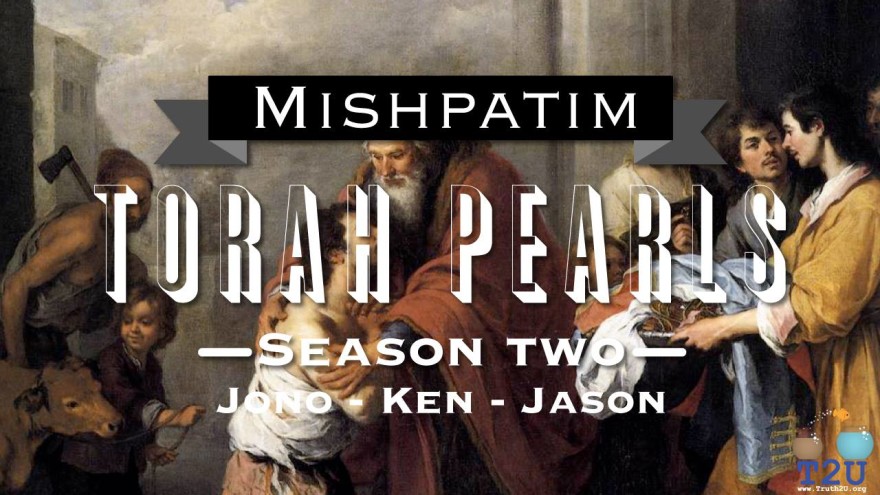Torah Pearls – Season 2- Mishpatim
Behold, I send an Angel before you to keep you in the way and to bring you into the place which I have prepared. Beware of Him and obey His voice; do not provoke Him, for He will not pardon your transgressions; for My name is in Him. – Exodus 23:20-21
Join us for this year’s Tanakh Tour of Israel!
[karma_by_kadar__simple_player title=”Truth2U” src=”https://truth2u.org/wp-content/uploads/Audio/Truth2U%20-%20Torah%20Pearls%20-%20Season%202%20-%20Mishpatim.mp3″ volume=”0.9″ autoplay=”true” downloadable=”true” color=”1″]
[wp-post-slider]





I love listening to these programs. Jason you bring an amazing viewpoint another way of looking at it everytime. Thank you. While listening to this teaching, this question rose up in my mind: What about what all the brothers did to Joseph? What about all the harm they caused him personally and Issac – the pain it caused him? How does all these rules apply to that situation? Does these rules apply to that kind of situation? Or has it already been addressed in scripture and i need to be aware of it? Thank you again for these programs. Love them
QQQ Regarding not letting your slave work on the Sabbath, Ken mentioned that going to a restaurant would mean the waiter is your slave; someone offering to drive you on the Sabbath would mean they are your slave, etc., because they are serving you. However, is that what the word “slave” means in context when Torah is speaking about slaves and the laws that apply to them? Isn’t that taking “slave” out of context? If someone offers to drive me somewhere on the Sabbath, does that make them my slave in the context of Torah?
Thank you
Wendy, the word slave is misleading. The Hebrew word is “eved” from the Hebrew verb la’avöd (“to work”),
An eved was more like an indentured servant, not a slave. In Torah law, you never have complete ownership over anything (everything belongs to G-d). The eved rest on the Shabbat and Jewish holidays. An eved could not be physically or sexually abused. An eved was obligated in many mitzvot, too.
An eved could even acquire and hold property of their own; a slave who “prospers,” can buy his way out of servitude (Vayikra / Leviticus 25:29).
Hoping Tovia is enjoying our state, try to stay warm.
I’ve been wondering, as I am reading through the laws, about the lack of prisons. It doesn’t seem that Yah allows for the locking up or caging of people as a punishment. It might be mentioned somewhere else and I am missing it, but personal space and freedom don’t seem to be in the mix when considering the consequences of people’s actions. Justice seems to be fairly swift as a rule unless you are paying off debt and that takes time.
Growing up we NEVER had meat and milk and if one drank milk, he would have to wait at least one hour to eat anything else. Later I found out my grandfather was Jewish and his mom had great influence on my mom and all her 14 siblings.
But anyway, I think eating milk with meat, since for me growing up you don’t mix, just the gross effect should make you stop. It is like eating chicken omelet. Like Paula Dean Turkey-Chicken-Duck wrapped together roast. In this case it is kosher, but I could not stomach it
STDS, you are correct that incarceration is not a normal mode of Jewish punishment. There is an article on this topic at JLaw. http://www.jlaw.com/Articles/ch_incarceration.html